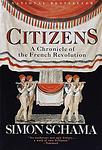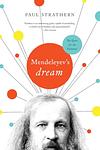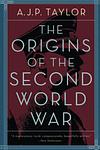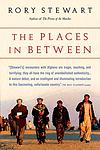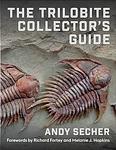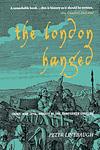The Greatest British "Nonfiction, History" Books Since 1980
Click to learn how this list is calculated.
This list represents a comprehensive and trusted collection of the greatest books. Developed through a specialized algorithm, it brings together 300 'best of' book lists to form a definitive guide to the world's most acclaimed books. For those interested in how these books are chosen, additional details can be found on the rankings page.
Genres
The category of "History" in books refers to the study and interpretation of past events, societies, and cultures. It encompasses a wide range of topics, including political, social, economic, and cultural developments, as well as the lives of individuals and groups who have shaped the course of history. History books can be written from various perspectives and may focus on specific time periods, regions, or themes. They aim to provide readers with a deeper understanding of the past and its impact on the present.
Countries
Date Range
Reading Statistics
Click the button below to see how many of these books you've read!
Download
If you're interested in downloading this list as a CSV file for use in a spreadsheet application, you can easily do so by clicking the button below. Please note that to ensure a manageable file size and faster download, the CSV will include details for only the first 500 books.
Download-
1. Old Glory by Jonathan Raban
In this travelogue, the author embarks on an ambitious solo journey down the Mississippi River, navigating the complex currents of both the waterway and the American heartland. Steering a 16-foot aluminum motorboat, he delves into the diverse cultures, histories, and landscapes of the river, encountering a vivid cast of characters along the way. The narrative captures the essence of the United States during a particular period, exploring the intersection of the past and present, the urban and rural, and the mythic versus the everyday. Through his eyes, readers experience the mighty river's role as both a conduit for adventure and a mirror reflecting the nation's soul.
-
2. Alan Turing by Andrew Hodges
This biography provides a comprehensive look at the life and work of a pioneering computer scientist and mathematician who played a crucial role in breaking the Enigma code during World War II. It delves into his groundbreaking contributions to the development of computer science, his tragic prosecution for homosexuality, and his enduring legacy in the field of artificial intelligence and computing. The book not only celebrates his scientific achievements but also examines the social context of his time, shedding light on the challenges he faced and the impact of his work on future generations.
-
3. Modern Times by Paul Johnson
"Modern Times" is an in-depth historical analysis of the 20th century, covering major events, movements, and figures that have shaped the modern world. The author critically examines the impacts of World War I and II, the Cold War, the rise of totalitarian regimes, and the influence of religion and ideology on politics and society. The book also explores significant scientific and technological advancements, and their effects on human perception and behavior. It provides a comprehensive understanding of the complexities and contradictions of the 20th century, and how they continue to influence the 21st century.
-
4. Citizens by Simon Schama
"Citizens" is a detailed and comprehensive exploration of the French Revolution, offering a fresh perspective on the historical event. The book examines the revolution from its earliest beginnings to its aftermath, delving into the causes, key figures, and the immediate and long-term consequences. It provides a vivid and engaging account, highlighting that the revolution was not just a period of bloodshed and turmoil, but also a time of radical political and social change that shaped the course of modern history.
-
5. Postwar by Tony Judt
"Postwar" is a comprehensive analysis of the history of Europe from the end of World War II to the early 21st century. The book examines the major political, cultural, social, and economic changes that have shaped the continent, including the Cold War, the rise and fall of the Soviet Union, the rebuilding of Western Europe, and the challenges of integrating Eastern Europe into the European Union. It also delves into the impact of these events on the daily lives of Europeans, exploring themes of memory, identity, and the struggle to come to terms with the past.
-
6. Into The Heart Of Borneo by Redmond O'Hanlon
The book is an enthralling travelogue that recounts the daring journey of two adventurers as they embark on an expedition into the dense rainforests of Borneo. With a blend of humor and erudition, the narrative captures their encounters with the island's unique wildlife, challenging terrain, and the indigenous Dayak people, whose customs and way of life are as intriguing as the natural wonders surrounding them. The travelers face numerous hardships and moments of awe, providing a vivid account of their quest to reach the center of one of the world's last great wildernesses.
-
7. The Rise And Fall Of The Great Powers by Paul Kennedy
The book in question offers a comprehensive analysis of the economic and military factors that have shaped the relative power of nations from the 16th century to the late 20th century. It argues that the rise and fall of great powers are closely linked to their ability to manage economic resources and maintain military strength. The author examines the patterns of history to show how the overextension of an empire's resources often leads to decline, and suggests that managing the balance between wealth and power is crucial for the longevity of a great power. The book also provides insights into the potential future of global power dynamics by considering the implications of these historical patterns for contemporary superpowers.
-
8. In Xanadu by William Dalrymple
"In Xanadu" is a travelogue that follows the journey of a young historian and writer as he retraces Marco Polo's route from Jerusalem to the fabled city of Xanadu in Mongolia. Along the way, the author weaves together a rich tapestry of history and adventure, engaging with diverse cultures and landscapes. His travels take him through the Middle East, South Asia, and into the heart of China, offering insights into the complex interplay between past and present, and the enduring allure of one of history's most legendary journeys. The narrative is as much a personal coming-of-age story as it is a homage to the spirit of exploration and discovery.
-
9. Mendeleyev's Dream by Paul Strathern
This book traces the history of chemistry from the ancient philosophers' wild speculations about the composition of the universe to the creation of the periodic table by Dmitri Mendeleyev. Through a blend of storytelling and science, it explores the development of atomic theory and chemical elements, leading up to Mendeleyev's groundbreaking dream in which he envisioned the periodic table in its modern form. The narrative delves into the lives and discoveries of key figures in the field of chemistry, illustrating how their work contributed to our understanding of the elements that make up the world around us.
-
10. Dr. Johnson & Mr. Savage by Richard Holmes
This book delves into the complex friendship between the 18th-century literary figure Samuel Johnson and the enigmatic poet Richard Savage. It explores the profound influence they had on each other's lives and works, set against the backdrop of London's vibrant and often sordid literary scene. The narrative weaves a tale of two men from vastly different backgrounds who form an unlikely bond, with Johnson becoming fascinated by Savage's scandalous history and the mysteries surrounding his true identity. Through their association, the book examines themes of authorship, friendship, and the struggles of the creative life, while also painting a rich picture of the society they navigated.
-
11. Second World War by John Keegan
"Second World War" is a comprehensive account of the global conflict that took place from 1939 to 1945. The book offers a detailed examination of the political, military, and social aspects of the war, from the rise of Hitler and the attack on Pearl Harbor, to the Holocaust and the dropping of the atomic bomb. The author provides an in-depth analysis of the strategies and tactics used by the major powers, and presents a vivid picture of the human cost of the war. The book also includes a variety of maps and photographs to help illustrate the events and locations discussed.
-
12. English Society In The Eighteenth Century by Roy Porter
This book offers a comprehensive exploration of the social landscape of 18th-century England, delving into the diverse aspects of daily life and the remarkable transformations that characterized the era. It examines the intricate fabric of English society, from the lives of the aristocracy to the conditions of the poor, and how the age was shaped by factors such as urbanization, commercialization, and the Enlightenment. The narrative captures the contrasts and contradictions of the period, revealing how advancements in education, culture, and industry coexisted with persistent inequality and social strife, painting a vivid picture of a dynamic and evolving society.
-
13. Revolution in the Head: The Beatles' Records and the Sixties by Ian MacDonald
This book provides a comprehensive analysis of the Beatles' music and its cultural impact during the 1960s. It delves into the creation and significance of each track, examining the technical innovations, lyrical content, and the sociopolitical context of the era. The work offers a song-by-song breakdown, exploring how the band's evolving creative dynamics and the tumultuous decade they helped define were reflected in their recordings. It is both a critical study of the band's discography and a reflection on the revolutionary spirit of the sixties, highlighting how the group's work was intertwined with the broader changes in music, politics, and society.
-
14. Staying Power: The History of Black People in Britain by Peter Fryer
"Staying Power: The History of Black People in Britain" is a comprehensive account of the African diaspora in Britain from Roman times to the present day. The book explores the various contributions of Black people to the British society, culture, and economy, challenging the traditional narrative that Black presence in Britain began with the Windrush generation. The author delves into the struggles, achievements, and resilience of Black people in Britain, offering a nuanced and detailed historical perspective.
-
15. The Places In Between by Rory Stewart
"The Places In Between" is a memoir by Rory Stewart about his journey on foot across Afghanistan in 2002, shortly after the fall of the Taliban. He travels from Herat to Kabul, encountering a variety of people and landscapes along the way. The book provides a unique insight into the culture and history of Afghanistan, as well as the challenges faced by the country in the aftermath of war. Stewart's writing is both lyrical and informative, making for a compelling read.
-
16. The Age Of Extremes by Eric Hobsbawm
"The Age of Extremes" is a historical analysis that explores the tumultuous period of the 20th century, spanning from 1914 to 1991. This work delves into the profound transformations and conflicts that defined the era, including the two World Wars, the Cold War, the rise of fascism and communism, and the eventual collapse of the Soviet Union. The book examines the impact of economic crises, technological advancements, and social changes on global societies, offering insights into how these extreme conditions shaped the modern world and its political landscapes. The narrative combines a detailed account of historical events with a critical evaluation of their economic and cultural implications, providing a comprehensive overview of a century marked by both unprecedented progress and devastating turmoil.
-
17. In Siberia by Colin Thubron
"In Siberia" is a travelogue that takes the reader on a profound journey through the vast and enigmatic Siberian landscape. The author traverses the region, from the Ural Mountains to the Arctic coast, exploring its desolate beauty and the resilience of its inhabitants amidst harsh climates and historical upheavals. Along the way, he encounters remnants of the Soviet era, indigenous cultures clinging to their traditions, and the poignant traces of exile and punishment that have marked the land. The narrative is a rich tapestry of history, personal encounters, and vivid descriptions that capture the soul of a place often synonymous with remoteness and exile.
-
18. Trilobite! by Richard Fortey
The book offers an enthralling journey into the ancient world of trilobites, the early arthropods that dominated the seas long before the age of dinosaurs. Through a blend of paleontology, geology, and evolutionary biology, the text delves into the fascinating life and times of these extinct creatures, which thrived for over 300 million years. The author's passion for the subject shines through as he explores the significance of trilobites in understanding Earth's history and the development of life, all the while painting a vivid picture of the prehistoric oceans that were once teeming with these complex and varied life forms.
-
19. The Hare with Amber Eyes: A Family's Century of Art and Loss by Edmund de Waal
This book is a family memoir that traces the journey of a collection of miniature Japanese sculptures, called netsuke, through generations of a wealthy Jewish family. The narrative delves into the family's rise to prominence in the late 19th and early 20th centuries, their survival during the Nazi regime, their post-war struggles, and their eventual decline. The author uses the netsuke as a lens to explore the themes of art, loss, and family legacy.
-
20. Orwell And Politics by George Orwell
The book is a comprehensive anthology that brings together a selection of essays, letters, and excerpts from novels, showcasing the author's profound political thought and his unwavering concern for social justice, freedom, and the abuses of political power. It provides insight into the author's evolving political ideology, from his early days as a colonial policeman in Burma to his experiences in the Spanish Civil War, which shaped his views on totalitarianism and socialism. The collection serves as both a reflection of the tumultuous political landscape of the 20th century and a testament to the author's enduring influence as a political writer and thinker.
-
21. Midnight In Chernobyl by Adam Higginbotham
"Midnight In Chernobyl" is a non-fiction book that tells the story of the 1986 Chernobyl nuclear disaster. The book provides a detailed account of the events leading up to the explosion, the immediate aftermath, and the long-term effects of the disaster. It also explores the political and social context of Soviet Ukraine at the time, and the impact that the disaster had on the country and the world. The book draws on interviews with survivors, officials, and experts, as well as archival documents and scientific research, to provide a comprehensive and compelling narrative of one of the worst nuclear accidents in history.
-
22. Among The Cities by Jan Morris
"Among the Cities" is a travelogue that takes readers on a journey to various cities around the globe, as seen through the eyes of an experienced and insightful traveler. The book offers a series of vivid portraits that capture the unique spirit, history, and culture of each urban landscape. With a keen eye for detail and a deep appreciation for the idiosyncrasies that define a place, the narrative weaves together personal anecdotes, historical snippets, and observations of social dynamics to provide an engaging reflection on the character and evolution of metropolises from every continent. The work is as much an exploration of the cities themselves as it is a meditation on the nature of urban life and the ways in which cities encapsulate the complexities of the human experience.
-
23. London: The Biography by Peter Ackroyd
This book is a comprehensive exploration of the city of London, from its ancient origins to the modern era. The author delves into the city's rich history, culture, and unique character, examining its evolution through various lenses such as crime, religion, commerce, education, and entertainment. The narrative is brought to life with fascinating anecdotes, vivid descriptions, and a wealth of historical detail, providing an immersive and engaging portrait of one of the world's most iconic cities.
-
24. Chasing The Monsoon by Alexander Frater
In this travelogue, the author embarks on a captivating journey following the Indian monsoon as it sweeps across the subcontinent. Starting from the southern tip of Kerala and moving up towards the northeastern state of Assam, he weaves together a tapestry of diverse experiences, meeting a variety of people and observing the profound impact that this dramatic weather phenomenon has on the land and its inhabitants. Along the way, the narrative is enriched with historical context, personal anecdotes, and vivid descriptions of the landscape, ultimately painting a portrait of the monsoon that is as much about the human spirit as it is about the forces of nature.
-
25. The London Hanged by Peter Linebaugh
"The London Hanged" is a historical analysis that delves into the economic and social aspects of capital punishment in 18th-century London. The book examines how the legal system, particularly through the use of public executions at Tyburn, was employed to control the laboring classes as London evolved into a capitalist economy. It explores the lives and trials of those sentenced to hang, not just for heinous crimes but often for petty thefts, reflecting the harsh penal codes of the time. The narrative connects these executions to broader themes of class struggle, economic exploitation, and the development of legal institutions that supported property rights over human rights, offering a critical look at the intersections of law, labor, and capital.
Reading Statistics
Click the button below to see how many of these books you've read!
Download
If you're interested in downloading this list as a CSV file for use in a spreadsheet application, you can easily do so by clicking the button below. Please note that to ensure a manageable file size and faster download, the CSV will include details for only the first 500 books.
Download


